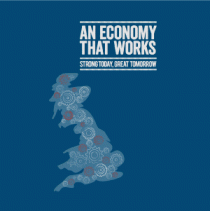- About
- Team
- Projects
- Children and the Environment
- ELiCiT (Exploring lifestyle changes in transition)
- Foundations for Sustainable Living
- HABITs
- Mapping Rebound Effects
- PASSAGE (Prosperity and Sustainability in the Green Economy)
- Policy Dialogue
- Price Responsiveness of Demand in Energy
- Resilience and Sustainable Lifestyles
- Sustainability Transitions in Food Systems
- Sustainable Living in Remote Rural Scotland
- Publications
- News
- Events
Forecasting UK household expenditure and associated GHG emissions: outlook to 2030
| Title | Forecasting UK household expenditure and associated GHG emissions: outlook to 2030 |
| Publication Type | Journal Article |
| Year of Publication | 2012 |
| Authors | Chitnis, M, Druckman, A, Hunt, LC, Jackson, T, Milne, S |
| Journal | Ecological Economics |
| Volume | 84 |
| Pagination | 129–141 |
| Abstract | Using the modelling tool ELESA (Econometric Lifestyle Environment Scenario Analysis), this paper describes forecast scenarios to 2030 for UK household expenditure and associated (direct and indirect) greenhouse gas (GHG) emissions for 16 expenditure categories. Using assumptions for real household disposable income, real prices, ‘exogenous non-economic factors’ (ExNEF), average UK temperatures and GHG intensities, three future scenarios are constructed. In each scenario, real expenditure for almost all categories of UK expenditure continues to grow up to 2030; the exceptions being ‘alcoholic beverages and tobacco’ and ‘other fuels’ (and ‘gas’ and ‘electricity’ in the ‘low’ scenario) leading to an increase in associated GHG emissions for most of the categories in the ‘reference’ and ‘high’ scenarios other than ‘food and non-alcoholic beverages’, ‘alcoholic beverages and tobacco’, ‘electricity’, ‘other fuels’ and ‘recreation and culture’. Of the future GHG emissions, about 30% is attributed to ‘direct energy’ use by households and nearly 70% attributable to ‘indirect energy’. UK policy makers therefore need to consider a range of policies if they wish to curtail emissions associated with household expenditure, including, for example, economic measures such as taxes alongside measures that reflect the important contribution of ExNEF to changes in expenditure for most categories of consumption. |













